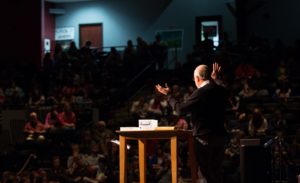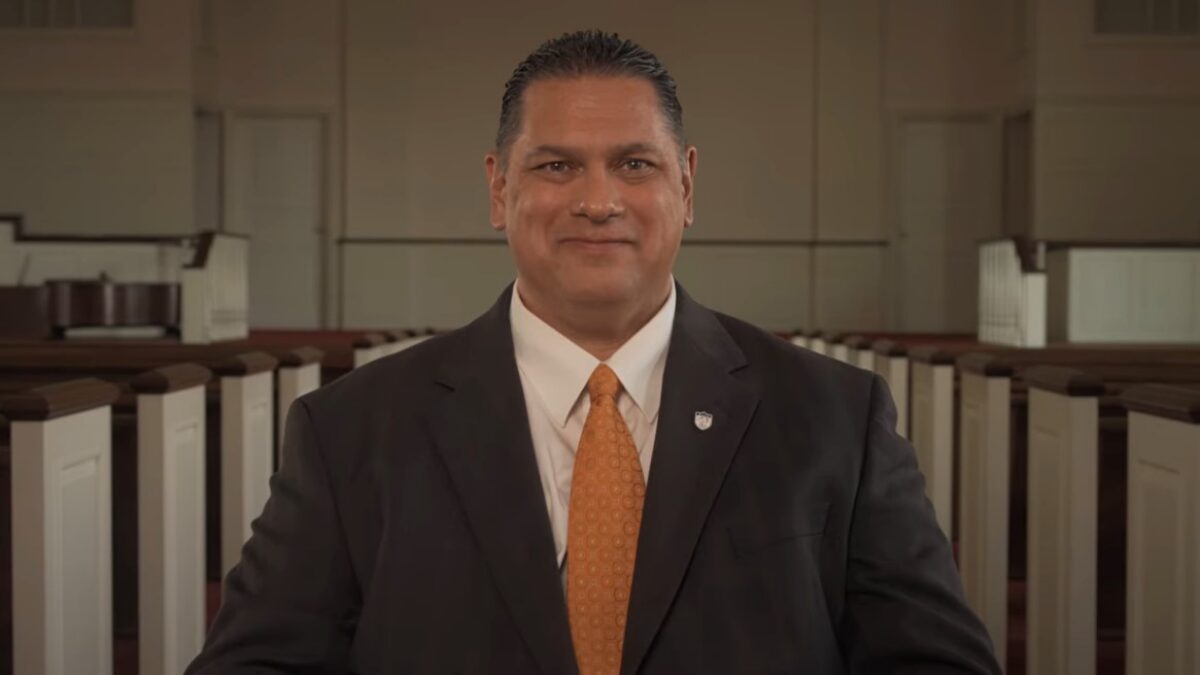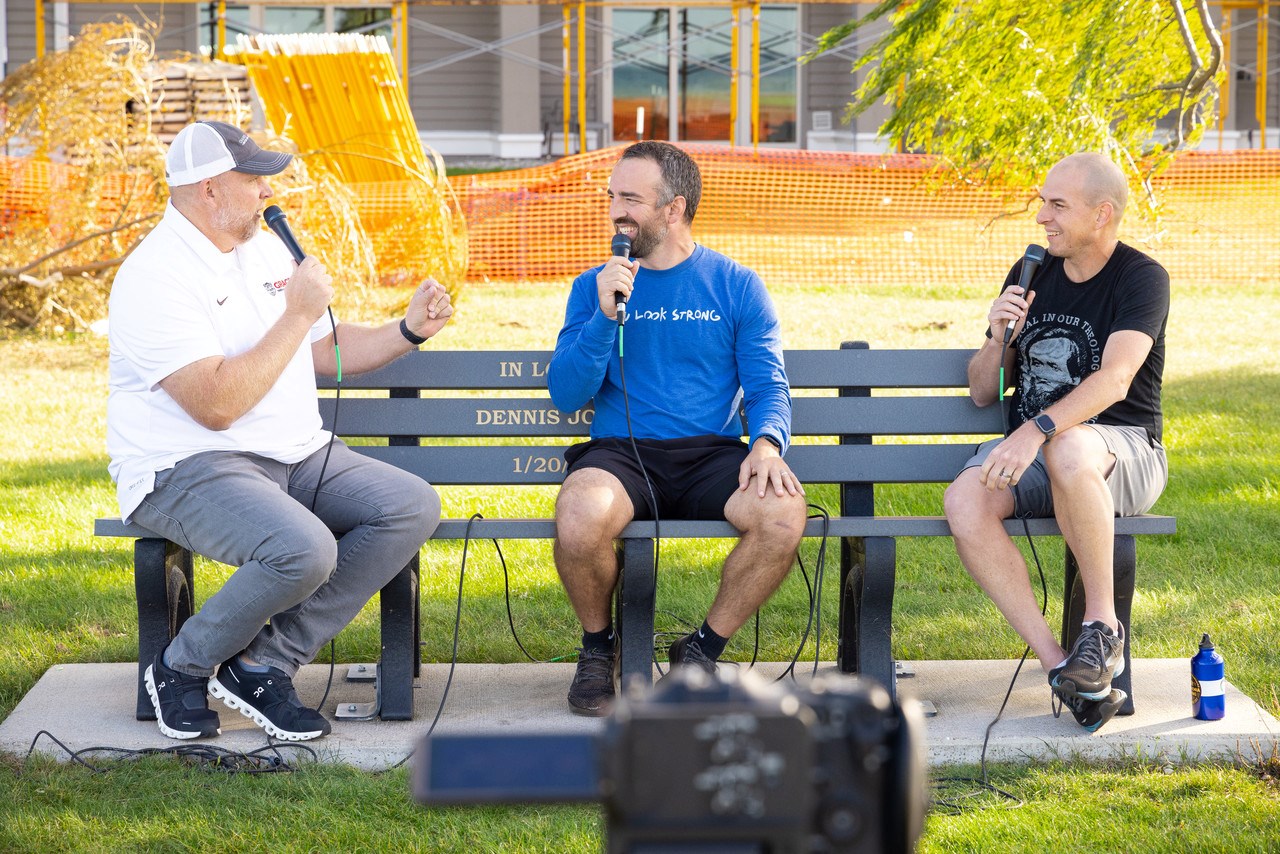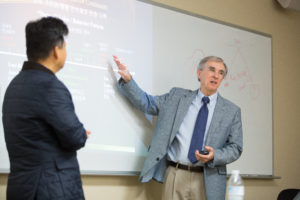Doctor of Ministry, Exemplary Biblical Preaching Concentration
The Doctor of Ministry in Exemplary Biblical Preaching is designed to equip pastors and other ministry leaders in the skills of sermon construction and public proclamation of the Scriptures by means of advanced training.
The Exemplary Biblical Preaching concentration engages active and aspiring preachers in order to stir up a fresh passion for preaching, stimulate the holistic formation and spiritual vitality of preachers, and strengthen pastors’ preaching proficiencies. Special attention will be given to implementing best practices based upon current research and personalized through preaching coaches who have demonstrated exemplary preaching ability.
*In addition to the listed tuition cost, this program has additional travel expenses (airfare, lodging, food) for the four concentration seminars since the teaching takes place on site at historic preaching locations. Please contact Seminary Admissions to learn more.

Learn about Grace Seminary's new Doctor of Ministry concentration in Exemplary Biblical Preaching

Ideal Fit
The Doctor of Ministry in Exemplary Biblical Preaching is designed to equip pastors and other ministry leaders in the skills of sermon construction and public proclamation of the Scriptures by means of advanced training.
This advanced training equips and empowers preachers to proclaim the good news of God’s grace to a variety of audiences in creative and compelling ways with a view toward life transformation. Students will aspire toward increased effectiveness in exemplary biblical preaching with accuracy, passion, and creativity.
Career Opportunities
A Preaching Pastor or Pastor of Proclamation is the primary herald of God’s Word during public worship services.
The primary role of Preaching Pastors is to proclaim God’s Word in an effective manner which includes edifying believers and evangelizing unbelievers. In addition, they are responsible for developing and leading other preaching/teaching ministries in the local church.
-
Preaching Pastor
-
Itinerant Preacher
-
Senior Pastor
-
Homiletics Professor

Course Overview
The final goal of biblical hermeneutics is preaching that transforms lives. Applying sound hermeneutical principles, preachers will work through the stages of interpretation including contextual, grammatical, syntactical, historical, and cultural analyses of the selected preaching text. After discerning the exegetical contours of the biblical text, preachers will employ effective homiletical methodology to craft the sermon outline. Prior to determining applications of the biblical text for their audience, preachers will engage in their own reflection and practice self-application within the context of personal spiritual formation.
God communicated His Word through multiple genres. Identifying the various biblical genres will assist preachers in clearly understanding and accurately interpreting the sermon passage. Preachers will grow in their ability to recognize the unique characteristics of biblical genres (Torah, Narrative, Poetry, Gospel, Epistolary, and Prophetic). Cautionary examples of literary genre overriding normal principles of interpretation will also be considered. Preachers will learn how to recreate the dynamics of biblical genres in their sermons.
Predictability diminishes audience interest. Variety increases listener engagement. Aspiring to edify believers and evangelize unbelievers, preachers will learn how to plan and execute a variety of preaching approaches: Expository, Topical, Biblical-theological, Evangelistic, Doctrinal, Biographical, and Thematic. Preachers will also analyze the methodology of exemplary preachers who have demonstrated strengths in specific areas of preaching such as outlining, introducing, illustrating, applying, concluding, and communicating with exceptional clarity.
Whether in person or via media, excellent sermon content can be hindered by poor delivery. Preachers will increase their effectiveness in sermon delivery through understanding and embracing principles using best practices in the following areas: Spirit-led preaching, theology of persuasion, rhetorical devices, visual and aural appeal, physical elements in preaching, multisensory aspects, personal style, audience analysis, contextualization, connection, creativity, and theology for digital technology (e.g. multi-cast; live streaming; social media; podcasting, etc.).
The goal of the course is to increase a speaker’s ability to develop messages which are: True to the biblical text; Clear and well-organized; Interesting to listen to; Specifically relevant to the listener’s needs.
Doctoral Seminar Schedule
Doctoral Seminar Registration
Entry Requirements
To be eligible for consideration for the Doctor of Ministry programs, the applicant must have a Master of Divinity and at least three years of ministry experience. Applicants with a Master of Arts degree in a theological or ministry field are eligible to apply but may require more ministry experience.
For more information please call or email our Admissions Department.
Admission Requirements
Grace Theological Seminary welcomes applications from all individuals who have a testimony of personal faith in Jesus Christ as Lord and Savior
To be admitted as a Grace Theological Seminary student, you’re asked to provide:
-
Official transcripts from the school where you obtained your degree. (If you are currently working on your degree, you can submit an unofficial transcript for admission until term completion, at which time an official transcript is required. Transcripts should be sent to admissions@grace.edu.
-
A spiritual life reference
-
International applicant must provide a copy of TESOL test scores, and provide a financial certificate indicating sufficient funding for the program of study.
-
Master of Arts applicants may have additional non-academic requirements as well as longer ministry experience requirements. MA applicants are encouraged to contact admissions for more information.
Learn More





